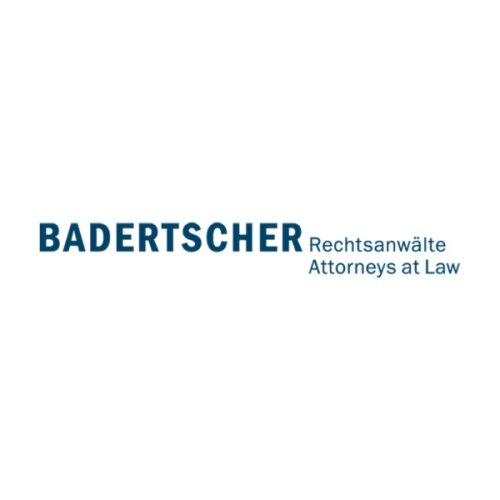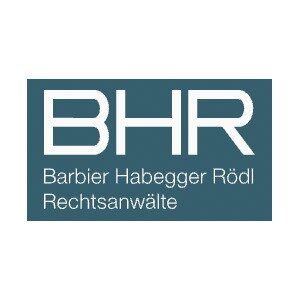Best Tax Increment Financing Lawyers in Zug
Share your needs with us, get contacted by law firms.
Free. Takes 2 min.
List of the best lawyers in Zug, Switzerland
About Tax Increment Financing Law in Zug, Switzerland
Tax Increment Financing (TIF) in Zug, Switzerland, is a public financing method used to subsidize urban redevelopment and infrastructure projects. It involves capturing the future tax benefits of the expected increase in property values that result from infrastructure improvements. These incremental taxes are then redirected to pay for the development expenses. TIF in Zug is considered a strategic tool for economic development because it encourages investment in communities, supporting growth and modernization in areas that may otherwise find it difficult to attract development.
Why You May Need a Lawyer
Seeking legal advice in relation to Tax Increment Financing in Zug can be crucial for several reasons. Common situations where legal help might be required include:
- Understanding the legal framework surrounding TIF and ensuring compliance with local regulations.
- Negotiating contracts or agreements related to development projects funded by TIF.
- Assessing the risks and benefits of a proposed TIF agreement for stakeholders.
- Handling disputes or litigation that may arise between developers, local authorities, and other parties.
- Navigating complex financial structuring and taxation issues associated with the TIF project.
Local Laws Overview
The local laws in Zug regarding Tax Increment Financing are governed by a mixture of federal legal frameworks and cantonal regulations. Key aspects include:
- Development projects must meet specific criteria to qualify for TIF, often focusing on urban renewal, infrastructure improvements, and economic need.
- The calculation of incremental tax revenue must accurately reflect the increase in property values post-development.
- Transparent public financial management and the reporting of TIF expenditures are mandated to assure accountability.
- Community involvement and the assessment of social impacts are often required to justify the use of TIF.
- Regulations protecting local interests ensure that TIF projects do not disproportionately affect small businesses or residents.
Frequently Asked Questions
What is the primary purpose of TIF in Zug?
The primary purpose of TIF in Zug is to promote urban redevelopment and infrastructure improvements by leveraging future tax benefits for immediate development financing.
Who can initiate a TIF project in Zug?
TIF projects can be initiated by local government authorities or private developers, but they must demonstrate a public benefit to gain approval.
How is the increment in tax revenue determined?
Incremental tax revenue is determined by the increase in property values due to the TIF-funded development, subtracting the initial base-year values.
Can TIF funds be used for any type of project?
No, TIF is generally reserved for projects that further economic development, improve infrastructure, or revitalize underserved areas in a way that benefits the broader community.
How long can a TIF district last?
The duration of a TIF district in Zug is typically limited and specified in the TIF agreement; it usually lasts long enough to repay the financing used for the development project.
What risks are associated with TIF?
Risks include potential miscalculation of tax increments, failure to achieve projected development benefits, or adverse effects on current community members.
What is the role of public participation in TIF projects?
Public participation may be required to gather community input, ensure transparency, and address potential community concerns about the development impacts.
Are there limitations on the use of TIF revenue?
Yes, TIF revenue is typically restricted to paying for project-related expenses, infrastructure, and sometimes public amenities specified in the TIF plan.
How does TIF affect existing taxpayers?
Ideally, TIF should not negatively affect existing taxpayers; the financing is based on projected new revenue rather than current taxation levels.
Can TIF be combined with other financing methods?
Yes, TIF can be part of a broader financing strategy that includes grants, loans, or other subsidies to enhance project viability.
Additional Resources
For further assistance, consider reaching out to the following resources and organizations:
- Zug Cantonal Office for Economic Development - provides information on policies, conditions, and support services.
- Swiss Federal Tax Administration - offers insights into national frameworks that may impact TIF.
- Legal professionals specializing in real estate and finance law in Zug for expert advice and representation.
- Local chambers of commerce or business associations for networking and support from peers.
Next Steps
If you need legal assistance with Tax Increment Financing in Zug, consider taking the following steps:
- Research and identify lawyers or legal firms with expertise in TIF and real estate law in Zug.
- Schedule consultations to discuss your specific needs and obtain an understanding of potential legal challenges and solutions.
- Ensure that you clearly understand the scope of services, fees, and expectations before engaging a legal professional.
- Stay informed about any updates or changes in local TIF regulations that may affect your project or business.
Lawzana helps you find the best lawyers and law firms in Zug through a curated and pre-screened list of qualified legal professionals. Our platform offers rankings and detailed profiles of attorneys and law firms, allowing you to compare based on practice areas, including Tax Increment Financing, experience, and client feedback.
Each profile includes a description of the firm's areas of practice, client reviews, team members and partners, year of establishment, spoken languages, office locations, contact information, social media presence, and any published articles or resources. Most firms on our platform speak English and are experienced in both local and international legal matters.
Get a quote from top-rated law firms in Zug, Switzerland — quickly, securely, and without unnecessary hassle.
Disclaimer:
The information provided on this page is for general informational purposes only and does not constitute legal advice. While we strive to ensure the accuracy and relevance of the content, legal information may change over time, and interpretations of the law can vary. You should always consult with a qualified legal professional for advice specific to your situation.
We disclaim all liability for actions taken or not taken based on the content of this page. If you believe any information is incorrect or outdated, please contact us, and we will review and update it where appropriate.









